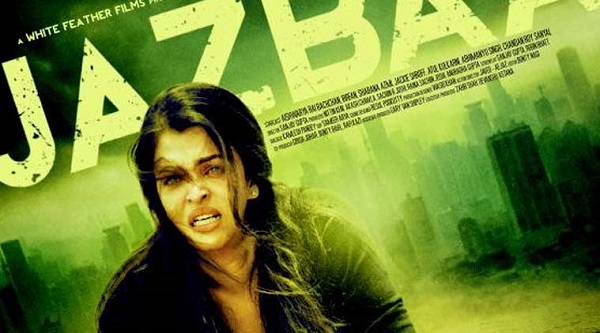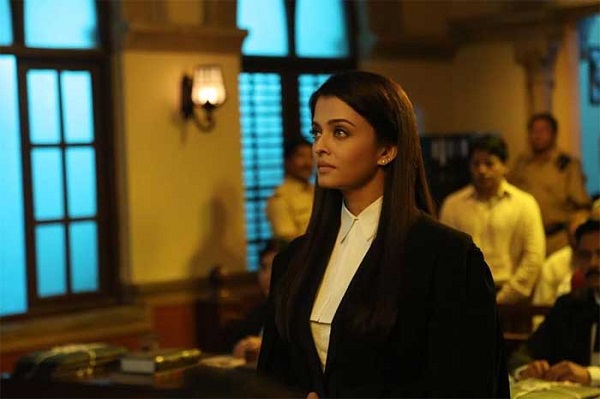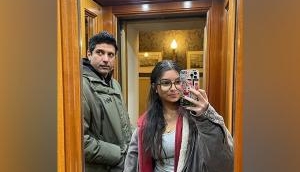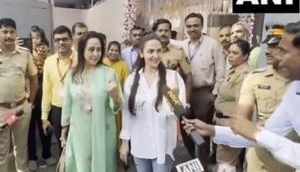
- A remake of South Korean thriller \'Seven Days\', the Aishwarya-starrer is forcibly vivid, melodramatic and grating
- Director Sanjay Gupta dilutes the engaging plot with bizarre frames
- Excessive staging and styling ruins the actors\' efforts
By itself, Jazbaa is not a bad film. It's just really badly made. It is treated as more of an occasion than a film, more of a comeback vehicle than a kidnap drama and more of a statement than a sincere attempt at storytelling.
Jazbaa tells the tale of a lawyer whose daughter is kidnapped and used to blackmail her into fighting a case in favour of a convicted rapist and murderer. The story is quite engaging and lends itself to the broad strokes and flourishes of mainstream filmmaking. Just as well, because it's a very loyal remake of the 2007 South Korean thriller, Seven Days. Despite a borrowed plot, the climax suggests that a mother's impulses are universal.
But what does a mainstream film include, really? Surely, it doesn't mean a lazy adaptation, lethargic writing aimed only at 'money shots' and impact-o-meters, and unnecessary stylisation under the garb of experimentation and pace. Mainstream filmmaking does not mean that supporting characters speak enigmatic lines that even they do not understand. Sample this: "What has never occurred will occur one day".

One finds it difficult to understand what the omnipresent green tint on the screen represents.
The movie attempts to represent doomsday by just one predictable Mumbai establishing shot - the Bandra Worli sea-link, framed to highlight saturated clouds and gloomy skies to suggest post-apocalyptic, increasingly erratic undercurrents. These skies get greener and darker as the film progresses.
Choosing a decent plot to retell is only one step. It then doesn't need to be smothered by the director's stubborn stamps just for the heck of it. What are these vivid colours supposed to suggest? A silent prayer for a greener, cleaner Mumbai? A depiction of jealousy? A suffocating toxic atmosphere? Or was Flubber just let loose in the colour-coding suite?
Sanjay Gupta likes to transport his audience into tinted - and tainted - environments to reiterate the power of cinema as an escapist medium. One cannot help but question why every indoor set of the film is designed to look like an amateur stage play. Maybe the decision to light up rooms like the inside of a shiny disco ball, or a prism, or the insides of an ancient gothic cathedral was a conscious one.
It could be that Gupta wants us to actually notice the bright sources of light outside each window to remind us that this is his film. Perhaps this is more important to concentrate on, than the actual story of a mother going through hell. Here, courts have green windows, hospitals have blue glass, and jails have red, while terraces and garages are made to resemble smoky Manhattan lanes.
The tragic part is that Aishwarya Rai Bachchan isn't really overacting. She's made to look like she is - thanks to Gupta's incessant cuts and complete disdain for continuity. For example, a scene where she breaks down and screams for her missing child is one that would have made for a compelling sequence - albeit as a single shot, sans the slow-motion, the music and the razzmatazz that Gupta chose to put in.
Bachchan acts with a fair amount of soul here, but the inane amount of flash-cuts and blurry transitions make her cries grate on our nerves. It appears as if she has been told to exaggerate her body movements to suit the fluctuating frame rates. Her eyes instantly become glassy and red, and everyone begins reacting and speaking in ambiguous phrases, metaphors and poetic one-liners.
Even Irrfan looks to the heavens a couple of times, maybe because he knows his cop rendition isn't all that novel anymore. At one point, after nabbing an imposter, Khan stands between two speeding local trains like Neo from 'The Matrix'. If only we could blame the tacky effects for this. But Khan seems to be in on it, looking straight into the camera as if to tell us, "Poster shot, guys."

The director's obsession with slow motions mars Aishwarya Rai's efforts to put soul in her character
With fine actors like Shabana Azmi - who plays the victim's mother, Atul Kulkarni - who plays the prosecution lawyer - and Chandan Roy Sanyal - who plays the criminal and is once again, wasted - Gupta should and could have done better. He lets his ego define the film, instead of letting the film define its characters.
Perhaps all the green stands for envy - an emotion the filmmakers probably experience when they watch exemplary Asian thrillers, which, in turn, they remake. Instead of creating work as strong as Seven Days, they choose to create different versions of it. And though this is a shortcut to success (or failure), perhaps the editor takes the term 'shortcut' too literally.
A word of advice: Don't sit too close to the screen. Unless you want to emulate the exploding-head sequences from Kingman: The Secret Service.
First published: 9 October 2015, 11:06 IST







![BJP's Kapil Mishra recreates Shankar Mahadevan’s ‘Breathless’ song to highlight Delhi pollution [WATCH] BJP's Kapil Mishra recreates Shankar Mahadevan’s ‘Breathless’ song to highlight Delhi pollution [WATCH]](https://images.catchnews.com/upload/2022/11/03/kapil-mishra_240884_300x172.png)

![Anupam Kher shares pictures of his toned body on 67th birthday [MUST SEE] Anupam Kher shares pictures of his toned body on 67th birthday [MUST SEE]](https://images.catchnews.com/upload/2022/03/07/Anupam_kher_231145_300x172.jpg)






